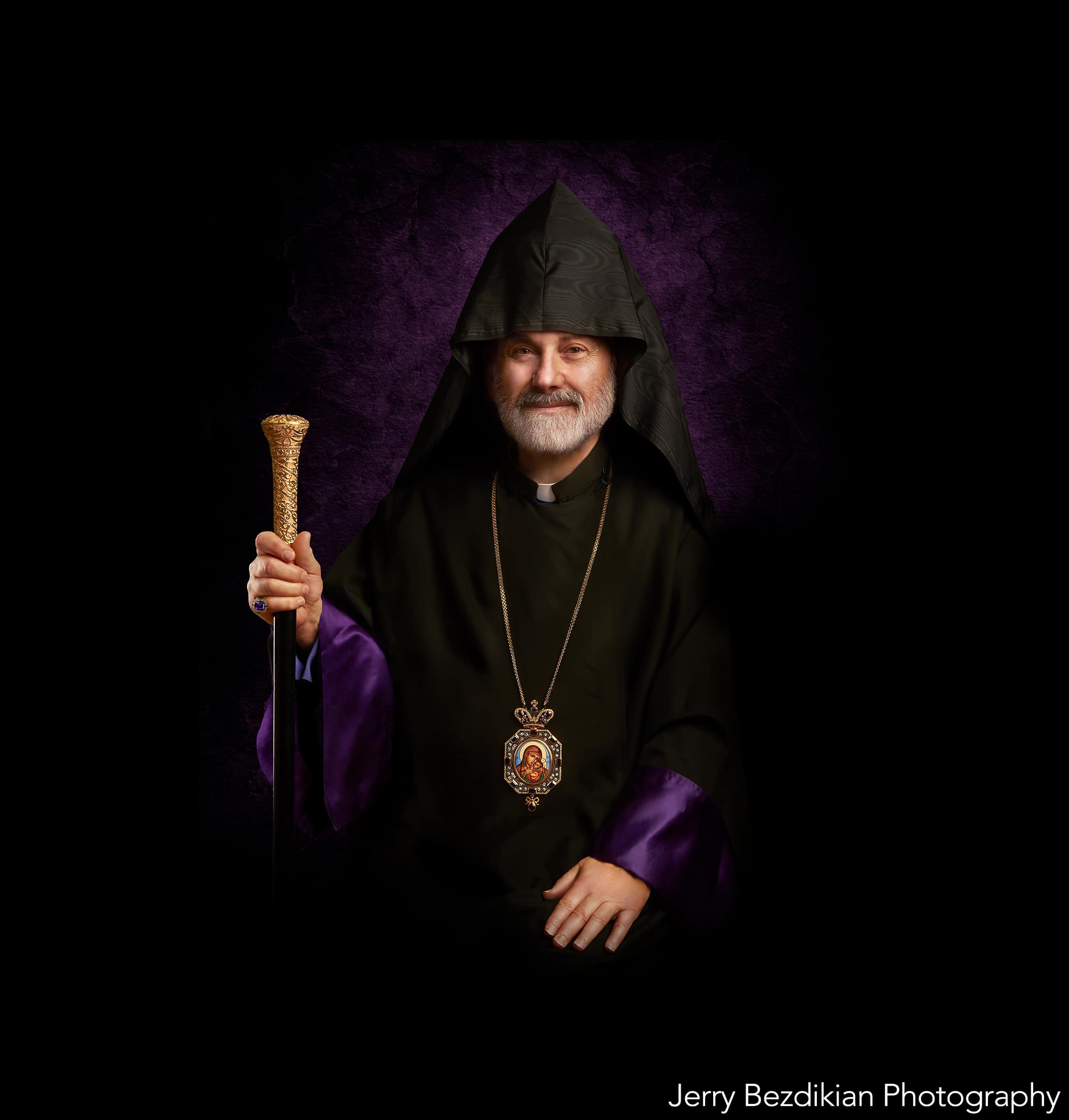THE KINGDOM OF GOD | AN ETERNAL SYMPHONY OF RIGHTEOUSNESS, PEACE AND JOY IN HOLY SPIRIT

The Prelate’s Sermon, Sunday, March 27
The fifth station in our spiritual pilgrimage of Great Lent is known as the Sunday of the Judge named after the parable of our Lord Jesus Christ which we read in the Gospel of St. Luke 18:1-8. I would like to focus on the preceding verses of this parable in Luke 17:20-21. The Pharisees asked the Lord when the Kingdom of God shall come. The response of our Lord is very peculiar: “The Kingdom of God is not coming with things that can be observed…the Kingdom of God is within you.”
The Kingdom of God is one of the major themes in the Scriptures. The response of our Lord opens a new understanding of this common term, the everlasting realm of the Almighty Lord enjoyed by the Celestials and to be enjoyed by all His worshipers. I would like to share a few thoughts on this important subject which interests us all.
- In the Dominical prayer known as “Our Father”, the Only Begotten Son of God teaches us to proclaim: “Thy kingdom come” (Mt 6:10 and Lk 11:2). Surely this message was not addressed to His immediate audience only, but rather to the children of God for all ages. Hence, the coming of the Kingdom is clear for Lord who is Timeless, yet for us earthlings, the timing cannot be counted with digital numbers.
- In the Gospel of Mark, after the Temptation and the arrest of John the Baptist, Jesus coming to Galilee proclaims that “the time is fulfilled, and the Kingdom of God has come near” (Mk 1:15). Within this verse amazingly the time gap of the Kingdom of God is no longer an issue, but rather it is already present.
- In today’s reading that the Kingdom of God “is within human beings,” time does not matter at all. It receives a unique dimension, which I would like to name the Fifth Dimension. We human beings have been created in the image and likeness of the Creator, the soul transcends the four dimensions of Space and Time, and soars into Infinity. Regardless of the fact that it is
- By expanding and making more tangible this last understanding of the Kingdom of God, Saint Paul says, “for the Kingdom of God is not a matter of eating and drinking but of righteousness and peace, and joy in the Holy Spirit” (Rom 14.17). Thus, it becomes a mode of life by mirroring the life of the Crucified and Risen Lord, by being light in darkness, hope in despair, and joy in sorrow.
The above-mentioned descriptions of the Kingdom of God might be interpreted as contradictory, yet they are deeply interwoven and complimentary to each other. Love, being the essence of the Almighty God, has empowered His will to bring forth the Creation, His Kingdom, for “the world and all that is in it – you have founded them. The north and the south – you created them” says the Psalmist (Ps 89:11-12). He is the sole King of the universe, of things visible and invisible. The design and the purpose of Creation are perfect regardless of all the deviations and the consequences of Free Will, for all are calculated and foreseen by the Omnipotent and Omniscient One as a solid sign of His unconditional love.
Hence, we are told to beseech “the coming of the Kingdom of God” in Time and Space for the Divine Love, Who tangibly embraced the fallen nature of His image, cleansed it from sin and empowered to walk sinlessly, so that reciprocally could be embraced by human love, as babies fulfill the joy of their parents. Thus, the Love of the Cross, aimed for reconciliation, bears its fruit.
The coming of the Kingdom longed for ages and ages by Patriarchs and prophets “has become near”, for it was heralded by John the Forerunner. It was “within us” for it was no longer a concept, but rather God the Word became flesh and dwelt among us (Jn 1:14). Moreover, it is not only “among us”, but “in us” for we were privileged to partake His Body and Blood, and thereafter we may live in “righteousness and peace, and joy in the Holy Spirit” as te Apostle Paul says (Rom 14:17).
Asking “the coming of the Kingdom of God” is a daily request to live and share the joy of His eternal Kingdom on earth until the Parousia, when Creation will be restored to its original glory, the Love and the Will of God only will prevail in the New Creation, and God will be all in all (1 Cor 15:28).
Let us all wholeheartedly and unceasingly beseech the coming of the Kingdom of God, for our citizenship is in heaven, as the Apostle says (Phil 3:20), and with the Celestials let us praise the All-Holy Trinity. Amen.
